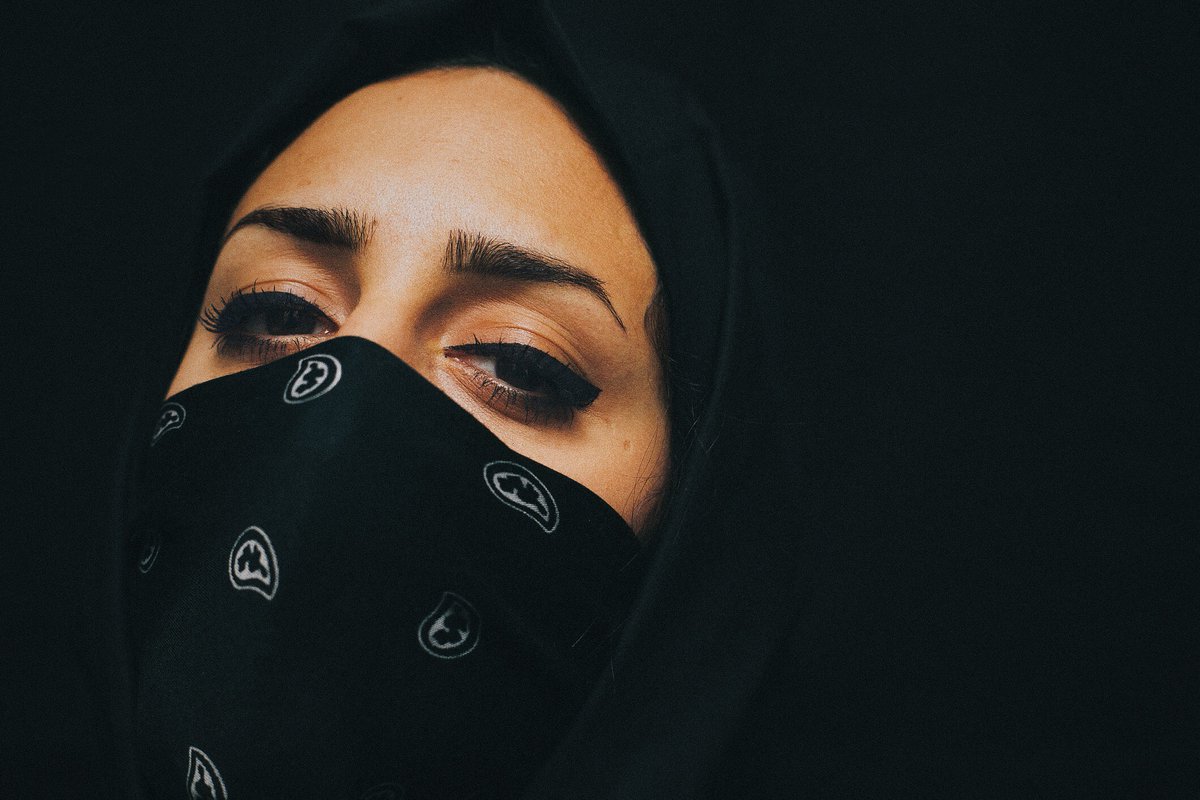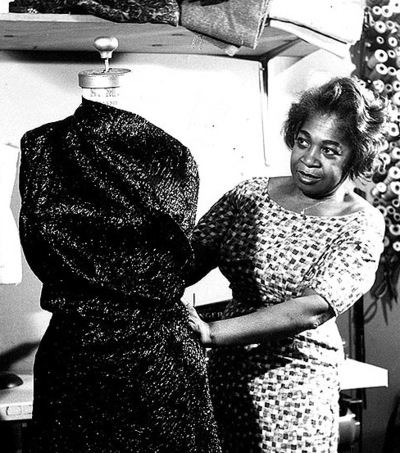
When I ask Fannie Sosa how she would introduce herself, she laughs. “Damn! I always have a moment of hesitation when people ask me what I do.” For me, this pause summarises the nuance of Sosa’s work; it exists between the said and the unsaid, somewhere between oral traditions and physical expression. Sosa is among many things an artist, activist, performer and singer; but the focus remains on the curative elements of her work. “I guess in many ways I am a healer, a curandera. What I try to do is to take myself, and Black womxn and womxn of colour in particular, to a pleasurable and sustainable existence through healing our reproductive functions and our reproductive bodies. I try to ignite change and relate to change through pleasure.”
Sosa’s restorative rituals take the form of her international twerkshops that have been increasingly popularized through social media. “As much as the message is carried through virtual spaces, I think ultimately for me, it’s about downloading all of this knowledge that I’ve seen online into our body, into ourselves. It’s very much against the culture of rapidity that we’re used to. I can’t hashtag it, it’s something that is very much about IRL.” I spoke with Fannie about community, visibility, and surviving white spaces.
COSMIC ASS – Marilou Poncin / Fannie Sosa from Marilou Poncin on Vimeo.
gal-dem: So Fannie, would you say that your twerkshops are a way to perform these pleasurable acts of resistance?
Fannie Sosa: Yes definitely, I think twerkshops have a lot of different functions. One of them is transmitting this sacred movement that is therapeutic and medicinal, but I think my main goal is to create and sustain community.
Would you say that one of the most important things of twerkshops is in creating community?
Yeah, definitely, I think in my life also. After the turn that the end of 2015 has taken, I think that’s our only hope. I really think so. I think that dissidence and getting organized as self-reliant, pleasurable communities of colour is where hope lies.
What struck me about your twerkshops is that they become so personal, and they incorporate the politics and philosophy of why each person comes to the twerkshops…
You know, it’s about reclaiming space and time, it’s about saying I have an ass and I have a khunt and I need them to be present – because we close and deny them so much, or we open it only for a gaze that is not ours. We ignore them, we defeat them, we are out of touch with them because we are afraid of being penetrated, raped or leaking. We are afraid of staining the family’s name with our fluids, our blood, our juices, so we disassociate from that part of the body. We carry them as a disgusting secret, instead of as the powerful resonance box the womb is.
So would you say that with twerking, the twerk affects the space as well as the space affecting the twerk?
Definitely. If you twerk in a public space whether it’s at a party or the street, you will immediately see a circle form around you physically. It’s a concrete, simple way of igniting a space around you and shaking the space so that the people in it are forced to take a position. And they do. A lot of people are with it, a lot of people are against it, and a lot of people don’t know what to feel, but you will open up a space by assing in it. It’s literally a transformative tool we have with us all the time and I use it very often to transform hostile spaces, or boring parties or spaces I don’t really vibrate with. I use assing and sisterhood to transform those spaces into a space where expression happens, where healing happens, where connection happens, and where community happens most of all. I think twerking is a community-creating tool.
So would you say there’s an element of you playing with visibility when you twerk? Because suddenly you can be the centre of a circle, the most visible person…
I think I’m playing with visibility but also invisibility, because I’m allowing a part of my body that is never seen to be visible, and I’m allowing my face to not be the one that is giving meaning. I give face all the time IRL. It’s so much about giving face, and I think hypervisibility – or the web 2.0 visibility – which I for sure benefit from and is a useful tool can also be damaging you know? So it’s a way to really root that visibility in a different place, the womb.
You mentioned the web 2.0 visibility – that links nicely with your PhD title ‘Twerk and Torque: New Strategies for Subjectivity and Decolonization in the Web 2.0 times’. How’s that going?
Right now it’s very difficult to write because the elements that I talk about are from an oral tradition and based on 4 plus years of empirical work. They are difficult to adapt to the white man’s writing – which is an academic space. It’s difficult to adapt them so that they keep their essence in the format of a PhD. So what I’m really trying to do with my PhD is not only to talk about the ass, and how I move it as an afro-descendant femme who struggles with displacement, but also how to write a PhD from outside the white male gaze. It’s a story of me, and Lord knows the whole academic building is based on deading subjectivities like mine. So I struggle. But I will overcome.
I really respect that. I find it hard enough at university, let alone trying to actively write something that counters the prevailing white narratives of education, because often the attitude is that it’s not ‘literary’ or ‘esteemed’ enough, which is such a toxic atmosphere.
Yeah, the epistemology -how knowledge is organized- is so colonial, is so sexist, is so racist – it’s so repressive, and it’s so boring! That’s not how I live, that’s not how I write, that’s not how I aspire to exist. So my PhD is like two PhDs in a way, one is how to write from a decolonial femmeinist Black point of view, and then obviously the content itself, and the archive work that I’ve done and the empirical knowledge that I’ve gathered.
I don’t think people realise how difficult it is to navigate these spaces.
Very difficult, because the whole paradigm that we’re living in, which is this white supremacist capitalist patriarchal paradigm, is self actualized and presented as if it was imminent and adherent to human nature. As if it was atemporal. All the founding tales of our time are based on warfare against Blackness, femme-ness, wetness, circular spaces, mothering economies.
You said earlier that white media often doesn’t get your message, why do you think that is?
There was a little extract published, I don’t know who the hell wrote this shit, it just says in quotation marks as if I was directly speaking: ‘twerking comes from the black culture of New Orleans’. I would never say it like that. That’s just not what I say. That’s just not how I use language, that’s just not what I pass on in my twerkshops. “the black culture of New Orleans”??? First of all I capitalize Black. Second of all it’s really fucking clumsy to address the multi-faceted, layered manifestations of Blackness in the US south like that. And the fucked up thing is, this article goes around, random people read it, white people receive this message in a really whitewashed way so that they can appropriate it, and then Black people read it and they’re like who the fuck is this light skin girl talking shit.
Is that why you do so many twerkshops? Because of the agency that it provides you with, in that you get to speak directly to people?
Yeah, I feel that it’s really hard sometimes to percolate what twerkshops really are unless you’ve participated. It’s so easy to twist my words. And I also am a light skin Latinx looking afro-descendant womxn, so a lot of people do side eye me because of those phenotypical attributes and how I am constantly whitewashed and made to sound less radical, less pro-Black, less angry. Like I’m catering to this ‘new trend’ of twerk that’s so amazing and that everyone should try because yoga and nomads. My twerkshops are open for all at times, but I do centre Black and afro-descendant femme bodies in them, always. I talk about my own privilege as a light skin afro-descendent college educated femme. I address the fact that I’m not from New Orleans, and that the word twerking, per se, does come from the southern states of USA, and how “american” mainstream culture has instrumentalised certain manifestations of Blackness and transformed them into cultural warfare tools.
But it is a movement that is present in all Latin American countries who are blessed by the Black diaspora and so as an afro-descendant myself, it’s mine. I grew up with this. I belong in there. I feel like so many times I’m negotiating not being white passing in official spaces, and sometimes I’m negotiating being expropriated from my Blackness in decolonial spaces. So that is the thing sometimes that is a little hard to convey in the media: I am a light skin college educated afro descendant femme, which is to be honest, pretty privileged, but I suffer from displacement, police brutality, murderous borders and the white male gaze too. The strategies of survival and healing treasures I’ve found while confronting this shit is what I share in my twerkshops.
On a final note, is there any thought you’d like to finish this interview on?
Pleasure is power. Selfcare as warfare.









